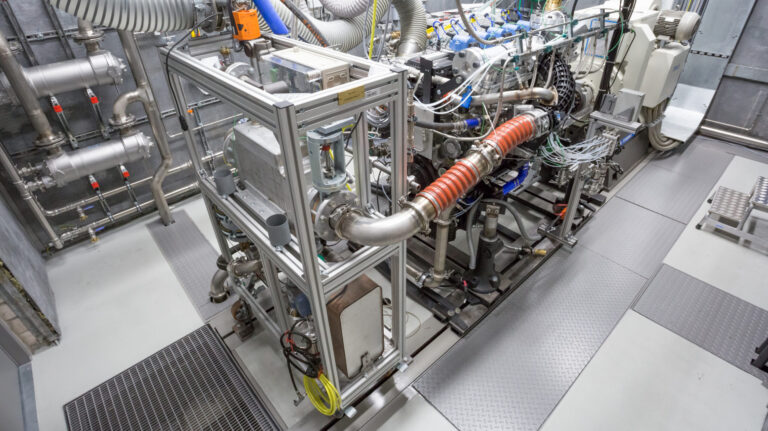Following a series order, Mahle will develop and supply engine manufacturer Deutz with components for hydrogen engines. The order is for so-called ‘power cell units’ – units made up of the piston, the piston ring pack and the piston pin. Deutz plans to use the components within a stationary hydrogen engine starting at the end of 2024, but plans are already in place to use the powertrain within the off-highway sector – including in agricultural and construction machinery.
Mahle has worked for several years on the development of engine systems for hydrogen and other climate-neutral fuels, and when using hydrogen produced from renewable sources, the engines can operate without emitting any CO2.
“We see hydrogen as an important building block for sustainable mobility, especially in the commercial vehicle sector,” said Arnd Franz, chairman of the Mahle management board and CEO. “This project with Deutz is a milestone with a lighthouse effect because it shows that there are other technological levers besides electrification to achieve climate neutrality.”
“To keep the world moving, we need different technology options,” explained Dr Sebastian Schulte, chairman of the management board of Deutz. “What a climate-neutral excavator or combine harvester will look like remains to be seen. For engines that are constantly in use and move large loads, several options are possible. One of them is the hydrogen engine. Our successful pilot projects demonstrate the potential in the commercial vehicle sector. With Mahle, we now have a strong partner to help us enter series production of our hydrogen engines at the end of 2024.”
Drawing on its knowledge of conventional diesel technology, Mahle has altered and adapted the aluminum piston and piston ring pack for use within the hydrogen engine. During hydrogen combustion, the main challenge is to optimize the gas mixture that is forced into the crankcase during the combustion process and the oil consumption.
The company states that it has already verified the reliability of the hydrogen components in a wide variety of engine classes.
“To achieve the climate protection goals, we must exploit the potential of all available powertrain technologies,” concluded Franz.
For more Mahle news, click here.


